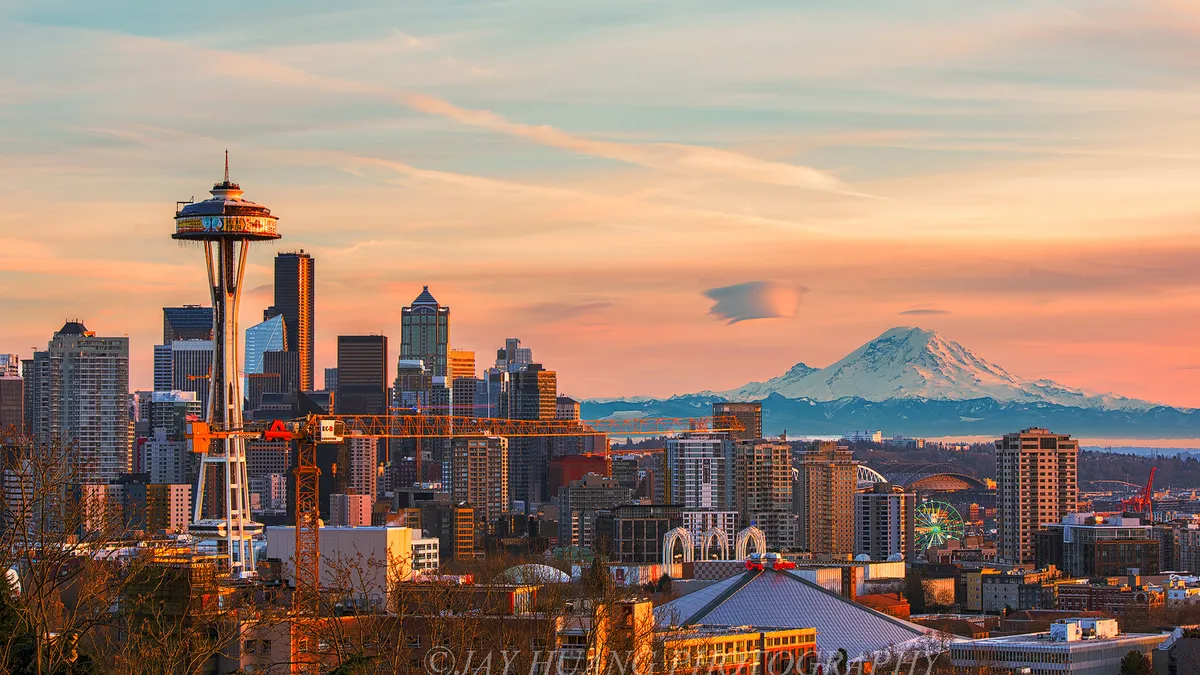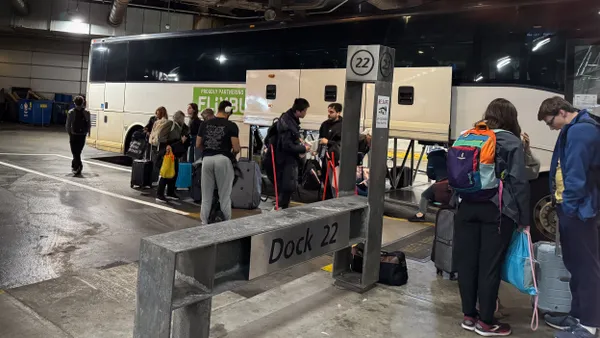Dive Brief:
- Seattle's minimum wage for ride-hailing drivers officially went into effect on Jan. 1, but the companies that operate in the city are warning fares may need to increase as a result.
- Drivers must now be paid at least $16.39 per hour under the new law, which is at least $0.56 per minute and $1.33 per mile driven while transporting passengers. The minimum wage stipulations build on Mayor Jenny Durkan’s "Fare Share" plan, which passed in 2019 and included compensation for benefits and other expenses, a 51-cent fare increase to pay for housing and transit improvements and a Driver Resolution Center.
- But ride-hailing companies are sounding the alarm about the financial impact for passengers. In an email, an Uber spokesperson said fares may be 50% higher by April, when the new fare structure is fully implemented. The company added a 61-cent surcharge to cover the costs of paid sick leave and a newly mandated 75-cent fee, which the spokesperson said accounts for around 10% of the price hike. Meanwhile, a Lyft spokesperson said while the company has not announced an immediate price increase, "it could do so in the future as a result of the new law."
Dive Insight:
Ride-hailing companies have been fiercely critical of the new rules in Seattle, which became the second city after New York City to impose new rules on the industry.
"We know that any price increase is frustrating for customers, and we continue to look for new ways to reduce prices while complying with the City Council's laws," Uber spokesperson Harry Hartfield said in an email. "There were progressive ways to create earnings protections for drivers without harming Seattlites that rely on ridesharing, and we are disappointed that the City Council was not more open-minded in their deliberations."
In an email, a Durkan spokesperson rejected the companies' criticism, and said it is important to protect the thousands of drivers on the platforms, many of whom the spokesperson said are from low-income families, and from "communities of color, including immigrant and refugee communities."
"Before our Fare Share plan, many of those who drive for Uber and Lyft were not receiving minimum compensation, especially after expenses, and had no access to benefits or basic worker protections," the spokesperson said. "While Uber is choosing to increase prices, Mayor Durkan believes the City must set a fair wage floor standard to create a living wage and add critical benefits and basic worker protections for Uber and Lyft drivers, many of whom have seen their livelihoods decimated by the COVID-19 pandemic and resulting economic downturn."
These regulations take effect mere months after California voters approved Proposition 22. The initiative creates a separate classification in California labor law for delivery and ride-hailing drivers to stay as independent contractors rather than be classified as employees under the state's AB5 law, which passed last year. Experts warned at the time that the ballot box victory may empower ride-hailing companies to further challenge any other regulations on the industry, especially at the local level.
Uber officials also warned of the impact of the coronavirus pandemic, combined with Seattle’s new regulations. Similar to much of the country, ride volumes were down as much as 80% in the city. Uber warned that due to the impact on revenue, it may be too costly to run a viable business if they are subject to stringent requirements.
The Durkan spokesperson rejected that too and said the impacts of COVID-19 have been felt the hardest by the city’s gig workers. "As we rebuild our economy and city in the wake of COVID-19, it is more important than ever that we pay drivers a fair wage plus sick time," the spokesperson said.












